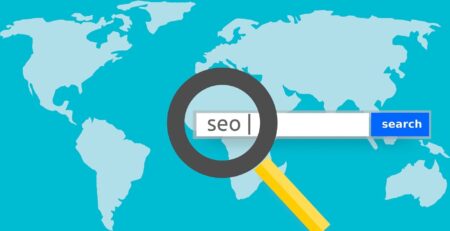When it comes to search engine optimization (SEO), the topic of no follow links is one that often stirs up a lot of debate. Some experts argue that no follow links are useless for SEO, while others believe they can still have a significant impact on your website’s search rankings.
In this article, we’ll explore the role of no follow links in SEO and whether they can actually be a secret weapon for boosting your website’s search ranking.
What are No Follow Links?
Before we dive into whether no follow links can impact your SEO, it’s important to understand what they are. No follow links are hyperlinks that have a special HTML tag attached to them that tells search engines not to follow or crawl the linked page. This tag looks like this: rel=”nofollow”.
When a search engine encounters a no follow link, it doesn’t pass any authority or “link juice” to the linked page. In other words, the linked page doesn’t benefit from the SEO value of the link. This is in contrast to do follow links, which do pass authority and can positively impact a website’s search ranking.
Can No Follow Links Boost Your SEO?
Now that we understand what no follow links are, the big question is: can they actually boost your SEO?
While no follow links don’t directly pass authority to a linked page, they can still have some indirect benefits for SEO. For example, a well-placed no follow link on a high-traffic website can drive valuable referral traffic to your site, which can indirectly improve your search ranking. Additionally, having a natural mix of both no follow and do follow links can signal to search engines that your website is diverse and has a natural link profile.
Furthermore, no follow links can also help with brand building, establishing credibility, and increasing the visibility of your website on the web. These indirect benefits can have a positive impact on your website’s SEO in the long run.
It’s also important to consider that search engines are constantly evolving, and their algorithms are becoming increasingly complex. While no follow links might not have a significant impact on SEO today, that could change in the future.
Best Practices for Using No Follow Links
If you decide to use no follow links as part of your SEO strategy, there are some best practices to keep in mind. First, make sure that no follow links are used when necessary, such as for user-generated content, advertising, or sponsored content. This helps ensure that search engines understand the context of the link and won’t penalize your website for improper use of no follow tags.
Additionally, it’s important to focus on building a diverse and natural link profile that includes a mix of no follow and do follow links. This can help signal to search engines that your website is reputable and trustworthy, which can positively impact your search ranking.
Conclusion
While the debate about the impact of no follow links on SEO continues, it’s clear that these links can have some indirect benefits for your website’s search ranking. From driving referral traffic to building brand credibility, no follow links can be a valuable addition to your overall SEO strategy. By using them thoughtfully and in conjunction with do follow links, you can maximize their potential to boost your website’s SEO performance.
FAQs
1. Are no follow links completely useless for SEO?
No, while no follow links don’t pass authority directly, they can still have indirect benefits such as driving referral traffic, building brand credibility, and diversifying your link profile.
2. Should I focus on getting more no follow links for my website?
It’s important to focus on building a natural and diverse link profile that includes both no follow and do follow links. Instead of solely focusing on getting more no follow links, prioritize creating valuable content and attracting high-quality natural links.
3. Can using no follow links negatively impact my website’s SEO?
If used inappropriately or excessively, it’s possible for search engines to interpret a high number of no follow links as an attempt to manipulate search rankings, which could have a negative impact on your website’s SEO.
4. Are there specific types of content where using no follow links is recommended?
Yes, it’s recommended to use no follow links for user-generated content, advertising, sponsored content, and any other instances where the context of the link may not be completely editorial or organic.
As the world of SEO continues to evolve, it’s important to stay informed about the latest best practices and strategies, including the use of no follow links. By understanding their role and potential impact on your website’s SEO, you can make informed decisions when it comes to incorporating them into your overall SEO strategy.











Leave a Reply